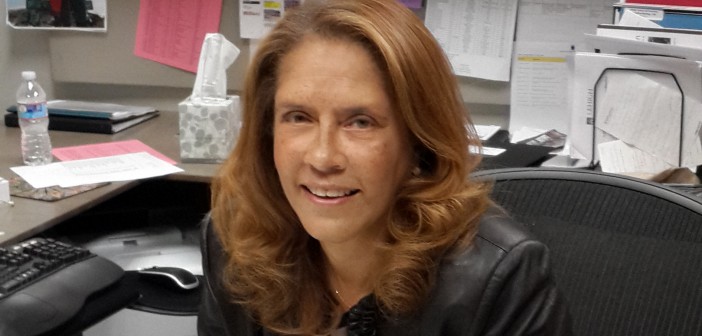In an examination of gender and race as factors in academic leadership, Dean of the College of Business and Economics Georgette Chapman Phillips spoke at a brown bag that delved into the subjects of prejudice and marginalization in the workplace.
Phillips, an African-American woman, had a first-hand opinion on why discrimination and marginalization are still prevalent in the modern day. As a professor in the Africana Studies program in the College of Arts and Sciences, Phillips passes her expertise to Lehigh students to ensure that graduates enter the working world culturally sensitive and emotionally aware of xenophobic ideals.
Phillips portrayed the paradox that she and many others face — how to avoid being stereotyped, while still embracing your own culture. Ostensibly, this may seem straight forward to put into practice, but society has a twisted defense mechanism that objects the different and foreign “other.”
Marie-Helene Chabut, a professor of modern languages and literature and a member of the faculty of women, gender and sexuality studies explained why this judgmental rejection occurs.
“Our identities constitute themselves in relationship — and too often unfortunately — in opposition to the ‘other,’ who can be of another race, religion, sex, language, culture, political party,” she said.
Phillips reiterated that gender and racial identity are not one’s defining factors, and that though people like to think they have no impact, the reality is that biases are still prominent.
“Instead of seeing people who are different from us as part of a diverse and rich humanity, we tend to see them as less than what we think we are,” Chabut said.
She also spoke on mankind’s lack of tolerance to “others,” and how it is linked with superiority.
“We grow up in communities that too often encourage us to feel superior and better than others, communities that protect us but at the same time limit our natural empathy for other humans,” she said.
Gender and race have a significant impact on academic leadership, according to the discussion. Phillips, an internationally recognized scholar who holds a Juris Doctor degree from Harvard Law School and a bachelor’s degree from Bryn Mawr College, has reached the upper echelons of academia, previously serving as the vice dean and director of the undergraduate division at the University of Pennsylvania’s Wharton School of Business.
Only 94 out of 414 deans of business schools are women, which amounts to 18 percent. Chabut explained that gender-power relations are still quasi-androcentric, particularly in the professional world.
“Statistics show that women are not promoted as fast and as often as their male counterparts,” she said.
When questioned on how to overcome “the double standard that exists” in our society, Phillips said that we have to determine who we are and have full confidence in our decision.
The sentiments “You have to grab it,” “Speak up in class,” and “Be part of the power for challenging people,” were used to exemplify the principles and open mindedness that Phillips discussed. She also encouraged that individuals should always take charge and never be a victim, as well as promoted an “open airing” and lack of need to classify as “other.”
In a globalizing world where we come into contact with many different cultures, ethnicities and opinions, cultural sensitivity and tolerance are key to synergistic relationships. As predominantly second generation advocates of equality and tolerance, Phillips encouraged that Lehigh students follow in the footsteps of the trailblazers before them, but prepare themselves to have a tougher task.
“Be part of the power for challenging people,” Phillips said.






Comment policy
Comments posted to The Brown and White website are reviewed by a moderator before being approved. Incendiary speech or harassing language, including comments targeted at individuals, may be deemed unacceptable and not published. Spam and other soliciting will also be declined.
The Brown and White also reserves the right to not publish entirely anonymous comments.